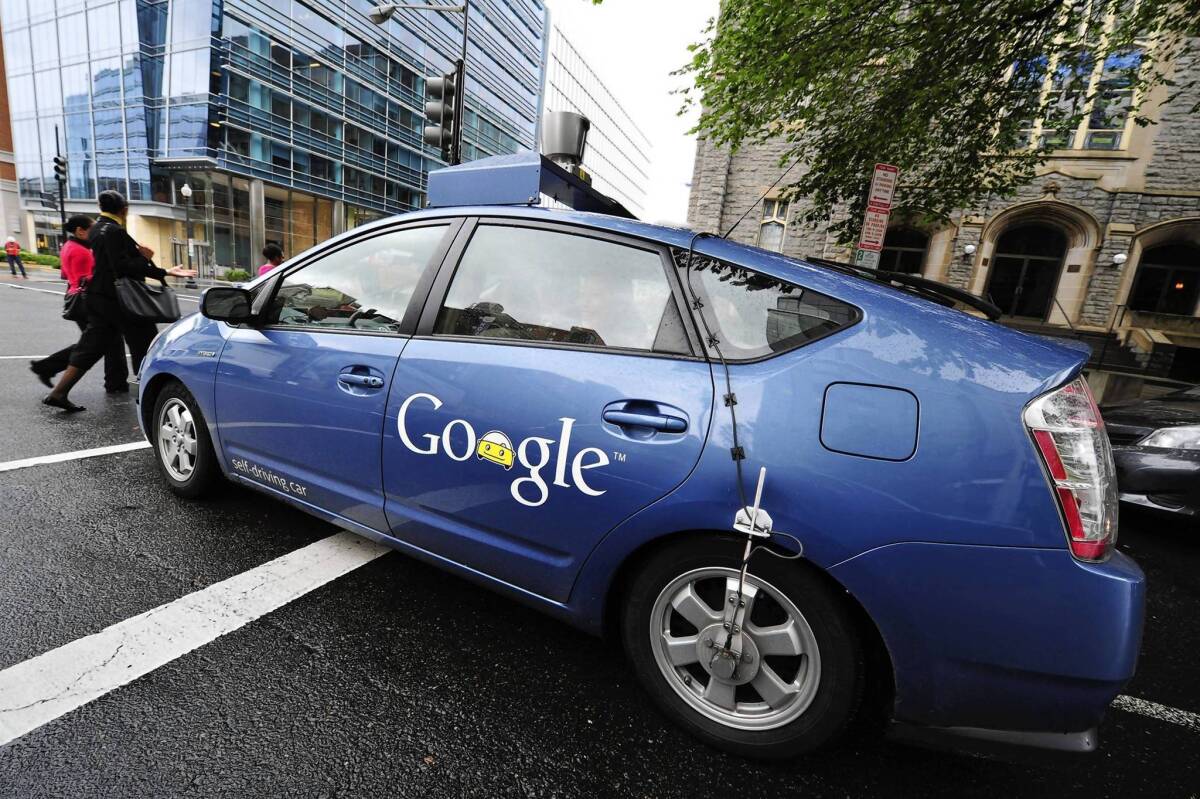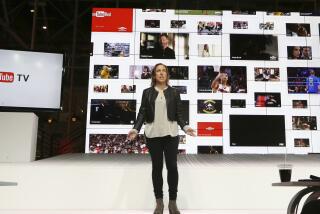On eve of Google developers conference, company ‘hot again’

MOUNTAIN VIEW, Calif. — Even though its ubiquitous Internet search engine practically mints money, Google Inc. was widely seen as a company whose best days were behind it.
It was written off as the next Microsoft Corp. — a staid high-tech giant in the shadows of Apple Inc. and Facebook Inc. that had lost its sense of urgency and innovative edge.
But that sentiment has shifted dramatically over the last year, and when Google swings open the doors to its annual conference for software developers Wednesday, it won’t just be showcasing its latest products. It will be showing off the newest version of Google.
“A year ago, everyone thought Google was just going to collect its pension checks” from search advertising, said Steven Levy, author of the book “In the Plex: How Google Thinks, Works, and Shapes Our Lives.” “Now it’s the hot company again.”
One of the main reasons Google is the company that everyone is talking about: big ideas.
Google has long been known for making long-term bets on audacious ideas, some of which evolve into indispensable parts of our everyday lives: photographing every street on Earth to create a digital replica of the planet, say, or providing instant translations of websites in any language.
Under Larry Page, the Google co-founder who took the reins two years ago from longtime Chief Executive Eric Schmidt, Google is experimenting even more. Building artificial intelligence software to power driverless cars. Wiring homes with super-speedy broadband. Developing futuristic glasses that when spoken to or touched let users take photos and snippets of video or send email.
Google even has a small group of researchers coming up with a simulation of the human brain, part of its effort to bore so deeply into people’s habits and lives that it can understand what they want — sometimes before they themselves know it.
“There’s not much competition” when it comes to exploring technological frontiers, Page said during the company’s first-quarter earnings call, “because no one else is crazy enough to try.”
These attention-getting projects have reinvigorated Google’s image in Silicon Valley and beyond. The company has a starring role in a new Vince Vaughn-Owen Wilson movie coming out June 7, “The Internship,” which showcases Google products and casts Google as “the greatest place to work in America.”
And it has again become the darling of Wall Street. Analysts still fret that searches on desktop computers, Google’s most lucrative way to sell ads, will cool off before it can come up with its next big moneymaker. But they say Page has impressed investors by running this $50-billion business of nearly 54,000 workers with hardheaded discipline.
Page has sharpened the company’s focus on a handful of product areas to deliver, in his words, “one consistent, beautiful and simple Google experience,” something Google executives say will be on display at its developers conference this week.
As rivals Apple and Facebook each experienced their own bruising falls, Google stock has shot up 65% since Page took charge. Google, whose shares closed at $877.53 on Monday, recently surpassed the market cap of Microsoft.
Prospects could get brighter if Page realizes his big ambitions for Google. Page wants Google to be on every screen and every device so online advertisers can reach consumers wherever they are and whatever they are doing.
Analysts aren’t sure Page can pull off that feat. And not everyone sees Google through such rose-colored glasses. Google must crack the code on making money on mobile devices. It also faces growing pressure to show investors it can turn all this costly technological wizardry into moneymaking businesses.
“If you look at the revenue of core Google.com sites, we have had three quarters in a row of year-over-year growth below 20%,” BGC Partners analyst Colin Gillis said. “If you go back and look at what the revenue used to be, it was a rocket ship. The rocket ship is slowing down.”
Google faces major obstacles on other fronts, too. As the technology giant has grown ever bigger and more powerful, worming its way into every detail and facet of people’s lives, it has drawn heavy scrutiny from government regulators and consumer watchdogs the world over.
Google emerged largely unscathed from an antitrust probe in the U.S. But its privacy practices are under attack in Europe, where it could face fines or restrictions on its operations. And Google’s competitors are trying to undermine an agreement the company reached with European antitrust authorities, which could force major concessions or scuttle the deal.
Still, these days the criticism is more muted, and more investors are betting on Google than against it.
“Google can do no wrong right now,” said Anthony Valencia, media analyst at TCW Group. “It is not hard to map out a scenario in which they continue to gain market share of the worldwide advertising market as they expand into other areas and keep up double-digit top-line growth. There are not a lot of companies that can do that.”
Analysts credit Page, who broke through bureaucratic layers that had slowed Google’s pace and handpicked a small team of lieutenants — called the L-Team — to help shape Google’s strategy. He culled the herd of unsuccessful projects to refocus Google on key product lines. And some of the big bets Page championed years ago — buying a tiny start-up to build Google’s mobile software Android and popular video-sharing website YouTube — have begun to pay off.
Android devices had about 69% of the smartphone market in 2012, up from 49% in 2011, according to research firm IDC.
Google’s YouTube has become the most popular video-sharing website in the world, bringing in an estimated $1.3 billion in advertising revenue last year. That number could reach $2 billion this year and $2.7 billion in 2014, Pivotal Research analyst Brian Wieser estimates.
Now Google is focusing on new products that could help search make the leap to mobile devices. Google Now, a personal assistant like Apple’s Siri, anticipates what information the user might want and provides it before the user asks. Google is counting on Google Now to help it offer more useful services and more relevant ads on mobile devices.
And Google may have also found a solution — at least for now — to one of its biggest challenges: making big money from small screens.
A growing percentage of activity on Google’s search engine is taking place on mobile devices, where ads generally cost less than they do on websites accessed via PCs. That has led to a decline in the amount that advertisers pay Google when someone clicks on an ad. So Google changed the rules. Advertisers must now create a single campaign, rather than separate campaigns, for different devices, and all Google ad campaigns will now include mobile ads.
“There is a clear shift under Larry in our ambitions. We were always an ambitious company. Always, always, always. But today our ambitions are bigger. They are bolder,” Google search chief Amit Singhal said.
Page is fond of saying that the greatest threat to Google is Google itself. Analysts tend to agree.
They worry about costly investments in speculative projects. And they worry about Google’s $12.5-billion acquisition of Motorola Mobility, a struggling hardware maker whose operations continue to bleed heavy losses.
Google executives shrugged off the concerns.
“We have a very long-term vision. What we are trying to accomplish might take more than a decade,” said Vic Gundotra, senior vice president of engineering. “People may overestimate us or underestimate us. But we will stay true to our vision.”
More to Read
Inside the business of entertainment
The Wide Shot brings you news, analysis and insights on everything from streaming wars to production — and what it all means for the future.
You may occasionally receive promotional content from the Los Angeles Times.










